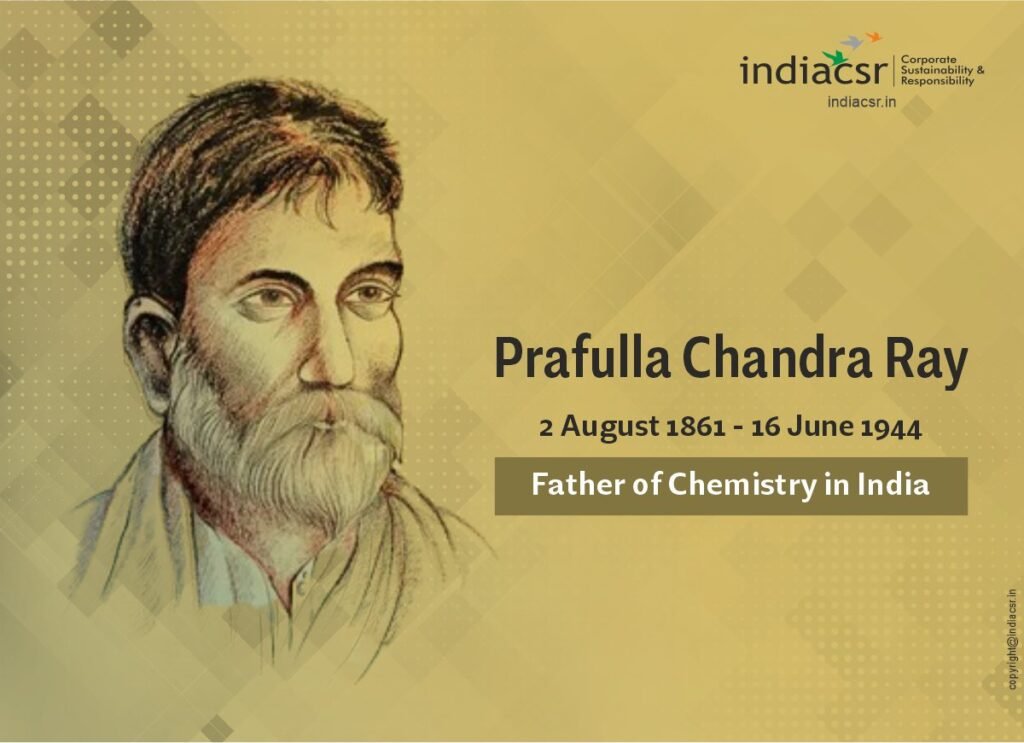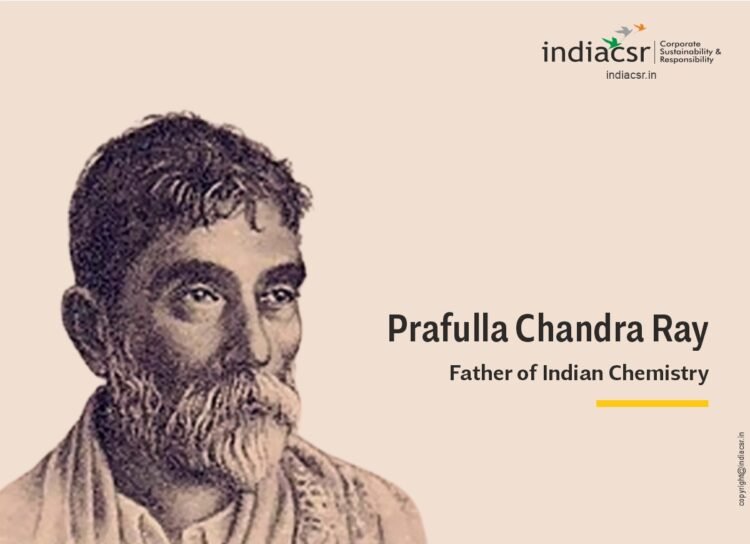In this article, we will delve into the life and accomplishments of Prafulla Chandra Ray, whose legacy continues to inspire and influence scientific pursuits in India and beyond.
Prafulla Chandra Ray, a distinguished Indian scientist and scholar, is widely regarded as the “Father of Indian Chemistry.” His groundbreaking contributions to the field of chemistry during the late 19th and early 20th centuries played a pivotal role in shaping the scientific landscape of India and earned him a prominent place in the annals of scientific history. With an unwavering passion for chemistry and a relentless pursuit of knowledge, Ray’s work not only elevated India’s status in the global scientific community but also laid the foundation for future generations of Indian scientists to thrive and make significant strides in the world of chemistry.
From Humble Beginnings to Scientific Heights
Born in 1861 in the Bengal Presidency of British India, Prafulla Chandra Ray wasn’t just an alchemist of chemicals, but a visionary who transformed the scientific landscape of the nation. He rose from humble origins to become one of the first “modern” Indian chemical researchers, pioneering the path for generations to come.
Young Prafulla showed an exceptional aptitude for science, graduating with exceptional marks from the University of Calcutta in 1879. His thirst for knowledge propelled him across the vast ocean, where he landed a scholarship to Edinburgh University in 1882. Brilliance bloomed on British soil, as Prafulla earned another degree in 1885, a DSc. in 1887, and even the prestigious “Hope Prize” for his groundbreaking thesis. This success earned him an additional year of research, allowing him to delve deeper into the world of chemicals.
Return to the Motherland: Cultivating Scientific Roots
In 1888, Prafulla returned to his beloved India, his heart brimming with dreams for his nation’s scientific advancement. He joined Presidency College as an assistant professor of Chemistry in 1889, igniting the minds of young students while simultaneously researching with unyielding dedication. Calcutta University became his second home, a platform from which he disseminated knowledge and conducted groundbreaking experiments.
Planting the Seeds of Industrial Independence
Driven by a burning desire for self-reliance, Prafulla established the first modern Indian research laboratory in Chemistry, nurturing a fertile ground for scientific exploration. Within its walls, he and his dedicated students toiled night and day, publishing over 150 research papers that challenged established norms and paved the way for future discoveries.
But Prafulla’s ambition extended beyond academia. He envisioned a nation free from dependence on foreign pharmaceuticals, a dream that manifested in the form of Bengal Chemicals and Pharmaceuticals, India’s first indigenous pharmaceutical company. Founded in 1892, it became a beacon of hope, offering affordable and quality medicines to the masses.

A Legacy Etched in Stone
Prafulla Chandra Ray’s contributions transcended the realms of science and industry. He remained a bachelor throughout his life, dedicating himself entirely to the pursuit of knowledge and national progress. He retired as a professor emeritus in 1936, leaving behind a legacy that continues to inspire.
In 1944, his journey on Earth came to an end at the age of 82, but his spirit continues to live on in the laboratories, factories, and hearts of countless scientists and entrepreneurs who draw inspiration from his unwavering dedication.
The Royal Society of Chemistry, recognizing his immense contribution, bestowed upon him the first ever Chemical Landmark Plaque outside Europe, a testament to his global impact.
Today, Prafulla Chandra Ray is revered as the “Father of Indian Chemistry,” his name synonymous with scientific excellence, industrial independence, and unwavering dedication to the betterment of his nation.
Beyond the Facts: A Life of Inspiration
Prafulla Chandra Ray’s story is not just about scientific achievements and historical milestones. It’s a testament to the human spirit’s ability to overcome adversity, defy limitations, and dream big. In a world dominated by colonialism, he dared to envision a self-reliant India, paving the way for generations of scientists and entrepreneurs to follow.
His life is a beacon of hope and inspiration, reminding us that even the seemingly impossible can be achieved with unwavering dedication and a relentless pursuit of knowledge.
(India CSR)







